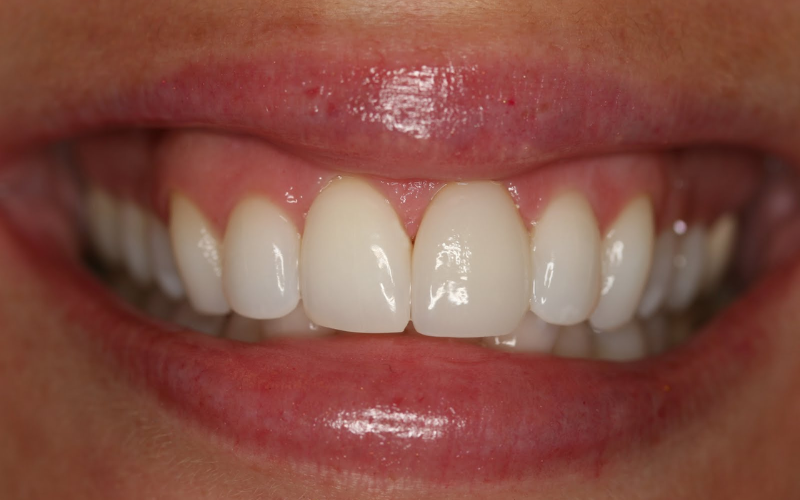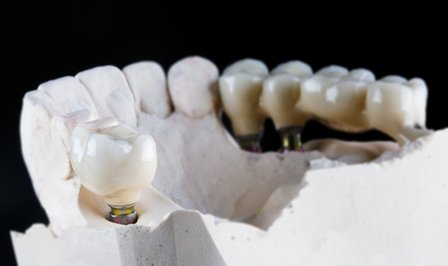

When it comes to dental work, choosing the right materials for your smile is crucial. If you’re considering porcelain crowns for front teeth, you’re not alone. Many people seek a natural-looking solution to restore their smiles. Porcelain crowns are known for their aesthetic appeal and durability, making them a popular choice among patients. However, it’s important to know whether they are the right fit for your needs. Let’s explore the benefits, drawbacks, and considerations when opting for porcelain crowns for front teeth.
Benefits of Porcelain Crowns for Front Teeth
Porcelain crowns have many advantages that make them an attractive option for restoring front teeth. Here are some key benefits:
- Natural Appearance: Porcelain crowns closely mimic the look of natural teeth. They can be color-matched to blend seamlessly with your existing teeth, providing a beautiful smile.
- Durability: Porcelain is strong and can withstand daily wear and tear. With proper care, these crowns can last for many years, making them a cost-effective choice in the long run.
- Stain Resistance: Unlike some dental materials, porcelain crowns resist stains from food and drinks. This means your crown will maintain its appearance over time, contributing to a more attractive smile.
- Biocompatibility: Porcelain is a safe material for most patients. It’s less likely to cause allergic reactions compared to metal-based options, which can be a concern for some individuals.
- Versatile Use: Whether you need to cover a damaged tooth, improve its shape, or enhance its color, porcelain crowns serve various purposes. They can address a wide range of dental concerns.
These benefits make porcelain crowns a popular choice for restoring the aesthetics and function of your front teeth.
Drawbacks to Consider
While porcelain crowns offer numerous advantages, there are also a few drawbacks. Here’s what you should keep in mind:
- Cost: Porcelain crowns can be more expensive than other types, such as metal crowns. It’s essential to consider your budget and dental insurance coverage when exploring your options.
- Chipping Risk: Though durable, porcelain can chip or crack under excessive force. This can happen if you grind your teeth or bite down on hard objects, so be mindful of your habits.
- Sensitivity: Some patients may experience increased sensitivity after getting a porcelain crown. This sensitivity usually subsides, but it’s something to discuss with your dentist beforehand.
- Preparation: Getting a porcelain crown often requires altering the existing tooth structure. This process can be invasive, so it’s essential to weigh the benefits against the need for preparation.
Before making a decision, consider these factors carefully. Discuss your options with your dentist to find the best solution for your unique needs.
Caring for Porcelain Crowns for Front Teeth
Once you’ve chosen porcelain crowns for your front teeth, proper care is essential to ensure their longevity. Here are some tips to help you maintain them:
- Maintain Good Oral Hygiene: Brush and floss regularly to keep your crowns and surrounding teeth clean. Use a non-abrasive toothpaste to prevent scratching the porcelain surface.
- Avoid Hard Foods: Be cautious with hard foods like ice, nuts, and hard candies. These can cause damage to your crowns over time and affect their appearance.
- Visit Your Dentist Regularly: Schedule check-ups to ensure your crowns and overall oral health remain in good condition. Your dentist can assess any wear or damage that may occur.
- Use a Mouthguard: If you grind your teeth at night, consider using a mouthguard. This can protect your crowns and natural teeth from damage during sleep.
By following these care tips, you can extend the life of your porcelain crowns and keep your smile looking great.
Porcelain crowns for front teeth offer an excellent solution for restoring your smile. They provide a natural appearance, durability, and resistance to stains, making them a popular choice for many patients. However, it’s important to consider potential drawbacks such as cost and sensitivity before making a decision. By discussing your options with your dentist, you can determine if porcelain crowns are the right fit for your needs.
If you’re looking for a way to enhance your front teeth, porcelain crowns might be worth considering. Their aesthetic benefits and durability make them a viable choice. Always remember to maintain good oral hygiene and seek professional advice to ensure the best results. Your smile deserves the best care possible!
Frequently Asked Questions
Are porcelain crowns stronger than natural teeth?
Porcelain crowns are durable and can withstand significant force, but they are not necessarily stronger than natural teeth. They are designed to support biting and chewing but can chip or crack under extreme pressure, especially if you have habits like grinding or clenching.
Do porcelain crowns look natural?
Yes, porcelain crowns are designed to mimic the appearance of natural teeth closely. They can be color-matched to blend seamlessly with your existing teeth, providing a natural look that many patients find appealing.
What is the process for getting porcelain crowns?
The process typically involves two visits. During the first visit, your dentist will prepare the tooth by removing any decay and shaping it for the crown. An impression is then taken, and a temporary crown may be placed. At the second visit, the permanent porcelain crown is fitted and cemented in place.
Can porcelain crowns be repaired if they chip?
In some cases, small chips in porcelain crowns can be repaired using dental bonding materials. However, if the damage is significant, the crown may need to be replaced entirely. Regular check-ups can help catch any issues early.
How do I know if I need a porcelain crown?
You may need a porcelain crown if you have a damaged tooth due to decay, trauma, or large fillings that compromise its strength. Your dentist will evaluate your specific situation and recommend the best treatment option based on the condition of your tooth.





